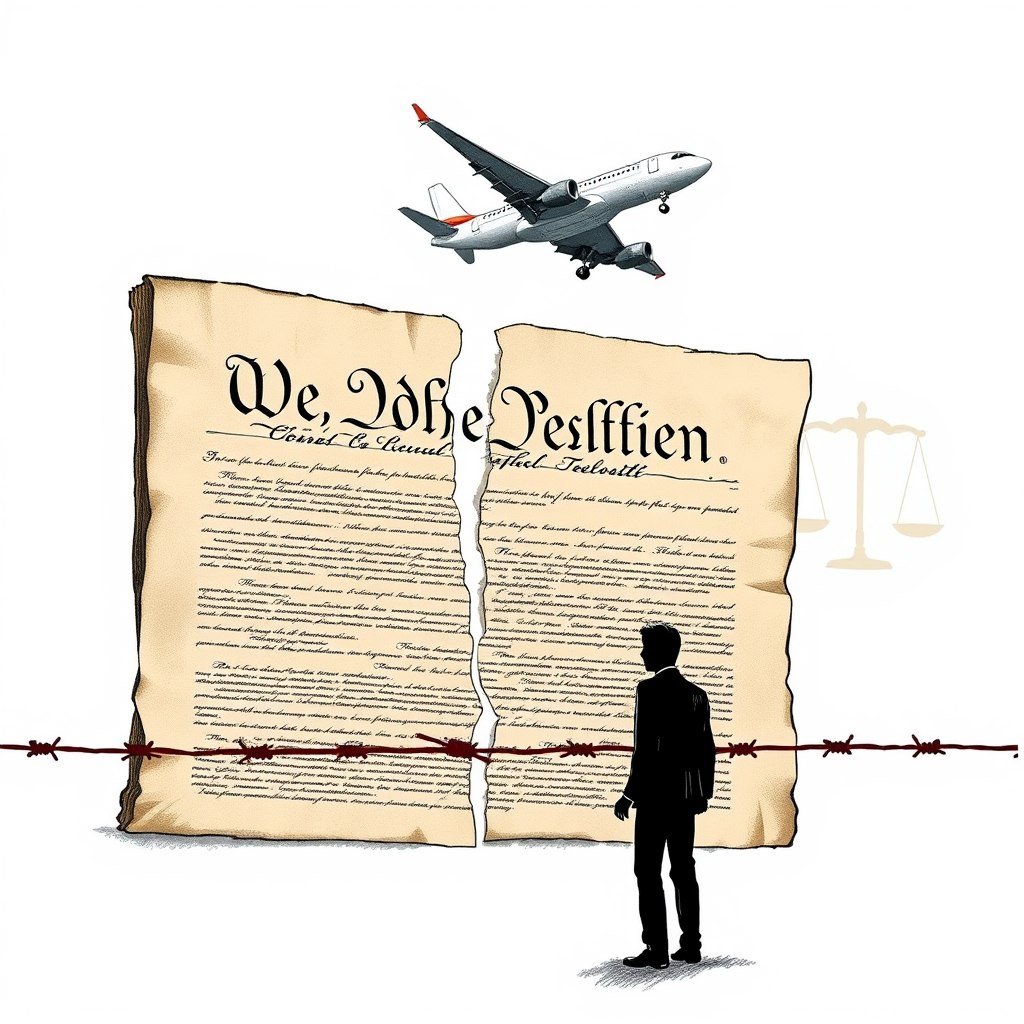Trump's Actions Trigger Constitutional Crisis, Expert Warns

A political scientist is sounding the alarm over the case of Kilmar Ábrego García, a man wrongfully deported to El Salvador despite a court order halting his removal, arguing the situation represents a critical juncture for American constitutional law. Jacob Levy, a professor at McGill University, asserts the Trump administration’s handling of the case demonstrates a dangerous disregard for habeas corpus – the right to legal recourse against unlawful detention – and signals a broader erosion of constitutional principles.
Ábrego García was deported in March based on allegations of gang affiliation, a move carried out even after a U.S. judge indicated the deportation should not proceed. The Supreme Court subsequently ordered the government to facilitate his return to the U.S. However, during a recent press conference with El Salvador President Nayib Bukele, the responsibility for García’s return was passed to Attorney General Pam Bondi, who pledged to provide a plane for his transport. Bukele, however, publicly stated he would not release someone he considered a terrorist back to the U.S.
Levy views this sequence of events as more than just a diplomatic impasse. He argues the administration is openly establishing a precedent where individuals targeted by Immigration and Customs Enforcement (ICE) can be deported without meaningful judicial oversight, even to countries where they face potential torture. He contends this isn’t a gradual slide toward authoritarianism, but a deliberate assertion of power.
The professor further highlights the case of Rumeysa Ozturk, a Tufts University student detained and deported by ICE after co-authoring an op-ed critical of Israel. The Department of Justice, according to Levy, has argued that even if someone is detained for exercising First Amendment rights, they can be denied habeas protection and moved to evade federal court jurisdiction.
Levy believes the administration’s actions, particularly the potential inclusion of U.S. citizens in deportations to El Salvador, are a clear and open embrace of a policy that fundamentally undermines the rule of law. He argues that if this isn’t a crisis for American constitutionalism, then nothing is. The situation, he suggests, isn’t a slow boil, but a rapid and deliberate dismantling of legal protections against arbitrary government action. It’s a concerning development, and Levy’s analysis deserves serious consideration, as it points to a potentially irreversible shift in the balance of power between the individual and the state.